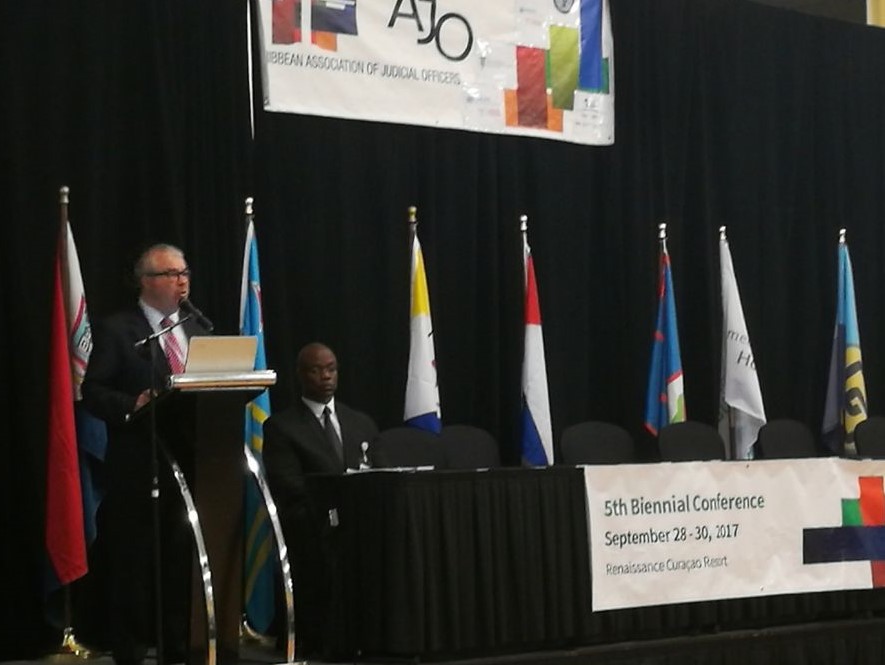
• The Center sponsored and participated in the V Biennial Conference of the Caribbean Association of Judicial Officers (CAJO), which was held in Willemstad, Curaçao.
• “We gained first-hand knowledge of the progress that has been made by justice systems in Caribbean nations as well as their needs. We plan to develop a joint technical cooperation plan,” remarked JSCA Executive Director Jaime Arellano.
As part of an effort to reconnect with Caribbean nations and learn about the state of their justice systems, the Justice Studies Center of the Americas (JSCA) sponsored and participated in the V Biennial Conference of the Caribbean Association of Judicial Officers (CAJO) September 28-30 in Willemstad, Curaçao.
.jpg)
The meeting, which was organized by CAJO, was entitled “Innovative, Independent, Responsive: The Modern Court.” Sponsors included JSCA, the Caribbean Court of Justice (CCJ), the UN Office on Drugs and Crime (UNODC) and the Judicial Reform and Institutional Strengthening (JURIST) Project developed by the government of Canada.
.jpg)
Over 200 people linked to the justice systems of Caribbean nations attended the event, which focused on topics such as the gender perspective in the application of justice, the JURIST Project model in the area of sex crimes, the use of statistics and performance measurement tools to improve courts’ efficiency, online dispute resolution, and trial by jury.
JSCA Executive Director Jaime Arellano offered a presentation on the mission, strategic objectives, and activities that JSCA develops in the region. He also explained how the Center engages in technical cooperation with countries and judicial branches that are interested in such collaboration. JSCA supports efforts made by countries in the region to reform their justice systems through research, training, and dissemination of knowledge.
“It was a very productive meeting for JSCA and the Caribbean justice systems. We had an opportunity to speak with individuals who work in those systems, including judges, administrators, technicians, attorneys, and academics. We learned about their realities and needs in order to be able to plan joint efforts in this sub region of the Americas.”

